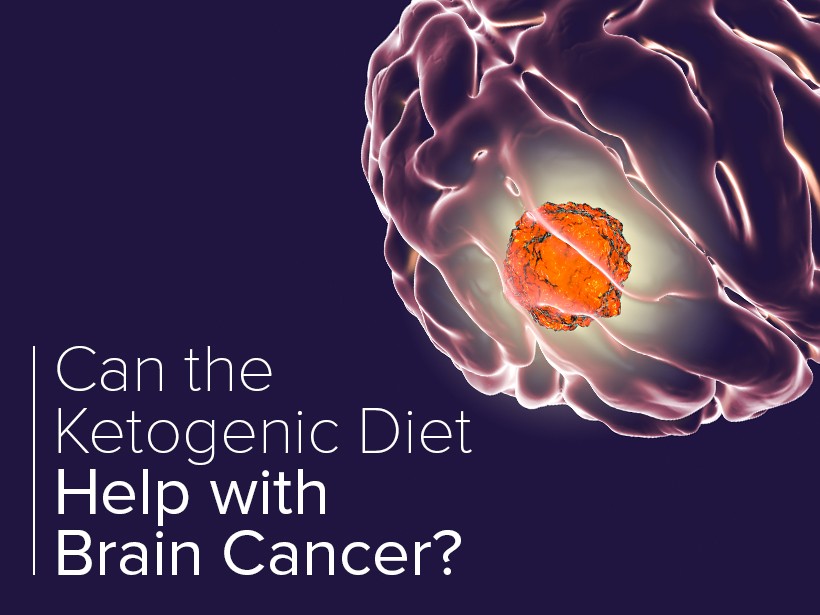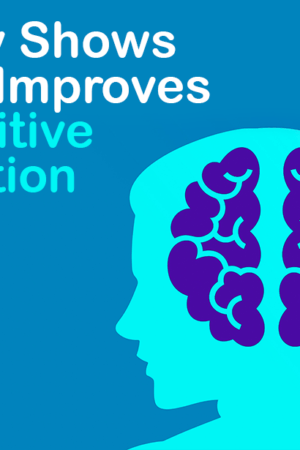Every year 17,000 Americans get a brain cancer diagnosis. They start out with signs and symptoms such as loss of appetite, headaches that are worse in the morning, seizures, nausea and vomiting, weakness or loss of feeling in the arms or legs, stumbling or lack of coordination, abnormal eye movements, changes in vision, and changes in personality, memory, speech, hearing, mood, and mental capacity.
People who are most at risk for brain cancer are people who have been exposed to radiation, pesticides, herbicides, fertilizer, lead, and petroleum. Most people who get brain cancer are 45 or older.
Current therapies used to treat brain cancer include surgery, radiation therapy, and chemotherapy. However, there may be another option. For decades, studies have shown the benefits of the ketogenic diet in the fight against brain cancer.
Brain Tumors Can’t Live Off Ketones
In a 2008 study conducted by Boston College, the ketogenic diet was found to be a legitimate alternative therapy for brain cancer.
They found that brain cancer cells are glycolytic and have a reduced ability to metabolize ketone bodies. When a patient is in ketosis, they are effectively not “feeding” the cancerous brain tumor. The ketogenic diet is effective in managing brain tumor growth in both animal models and human patients. What’s more, the ketogenic diet acts as an antiangiogenic (meaning that it prevents the growth of cancer) and is anti-inflammatory.1
Bottom line: as long as brain tumors have access to glucose and glutamine, the disease will progress.2
A 2003 study published in the British Journal of Cancer reports that a dietary reduction in glucose coupled with elevated ketone bodies are directly correlated with the inhibition of brain tumor growth. The ketogenic diet enhances the health and vitality of normal cells and tissues, while inhibiting cancerous growth.3
Malignant cancer cells in the brain are not metabolically flexible. They cannot thrive off of ketones, but only glucose. Healthy brain cells though, love ketones.4
The Ketogenic Diet Improves Cancer Symptoms
In a landmark study performed in 1995 by University Hospitals in Cleveland, two young girls with brain cancer tried the ketogenic diet. Both patients had advanced-stage brain tumors that did not respond to chemotherapy. These girls adhered to the ketogenic diet for 8 weeks.
The results showed that glucose uptake at the tumor site decreased by an average of 21.8 percent in both subjects. One patient showed significant improvements in mood and skill development during the study and continued the ketogenic diet for an additional twelve months, remaining free of disease progression.5
This study shows us that the ketogenic diet could be beneficial in the long-term management of brain tumors and alleviate some of the symptoms of brain cancer.
If you or a loved one is struggling with brain cancer, talk to your doctor about the ketogenic diet. Cancer patients on the ketogenic diet can not only see a reduction in cancerous cells and shrinking tumors, but a boost in quality of life.
NUTRITIONAL DISCLAIMER
The content on this website should not be taken as medical advice and you should ALWAYS consult with your doctor before starting any diet or exercise program. We provide nutritional data for our recipes as a courtesy to our readers. We use Total Keto Diet app software to calculate the nutrition and we remove fiber and sugar alcohols, like erythritol, from the total carbohydrate count to get to the net carb count, as they do not affect your blood glucose levels. You should independently calculate nutritional information on your own and not rely on our data. The website or content herein is not intended to cure, prevent, diagnose or treat any disease. This website shall not be liable for adverse reactions or any other outcome resulting from the use of recipes or recommendations on the Website or actions you take as a result. Any action you take is strictly at your own risk.
- A Ketogenic Pregnancy: Is It Safe? - June 20, 2018
- Perfect Keto Nut Butter is, Well, Perfect for Keto - May 14, 2018
- The Silicon Valley’s Favorite Diet? Brain-Boosting Keto - May 11, 2018




